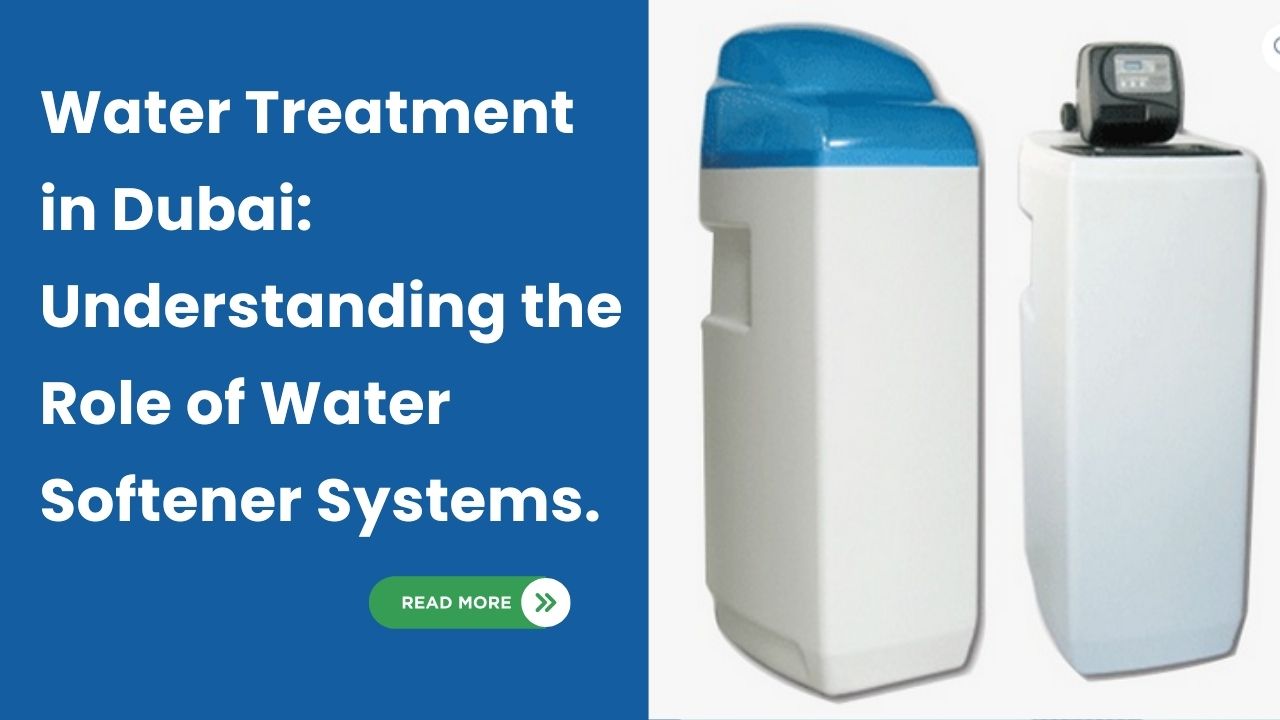A water softener system is a specialised water filtration device used to treat hard water by removing minerals such as calcium and magnesium, which cause water hardness. These minerals are naturally occurring and enter the water supply as it flows over rocks and through soil, picking up ions. While not harmful to health, hard water can create numerous issues within a household or business, affecting everything from plumbing and appliances to cleaning efficiency and personal care. Here, we’ll explore the purpose and benefits of a water softener system for water treatment in Dubai in detail.
1. What is Hard Water?
Hard water is characterized by high levels of dissolved calcium and magnesium ions. When hard water evaporates or dries, it leaves behind mineral deposits. Over time, these deposits—commonly known as limescale—accumulate in plumbing systems, appliances, and fixtures, potentially causing damage and reducing efficiency. Hard water can also lead to soap scum buildup and make tasks like cleaning dishes and clothes more challenging, as the minerals interfere with soap’s ability to lather.
2. How a Water Softener System Works
Water softeners operate on the principle of ion exchange. Inside a water softener system is a tank filled with resin beads, which carry a negative charge. Since calcium and magnesium ions are positively charged, they are attracted to the resin. As hard water flows through the tank, the calcium and magnesium ions are exchanged with sodium or potassium ions, which do not contribute to hardness. This process effectively removes the hardness-causing minerals from the water, leaving behind “soft” water that is gentle on plumbing, appliances, and skin.
The ion exchange process requires periodic regeneration to flush out the accumulated calcium and magnesium ions and recharge the resin beads with sodium or potassium ions. This is typically done by adding salt to the system, although some systems can use potassium, which is considered more eco-friendly.
3. Benefits of a Water Softener System for water treatment in Dubai
A water softener provides several advantages, including:
Protecting Plumbing and Appliances: Hard water can lead to limescale buildup in pipes, fixtures, and household appliances like dishwashers and water heaters. Over time, this accumulation reduces water flow and forces appliances to work harder, which can lead to higher energy costs, frequent repairs, and shortened lifespans. By using softened water, homeowners can prevent these issues, protecting their plumbing infrastructure and prolonging appliance life.
Improving Cleaning Efficiency: Soap reacts poorly with hard water, creating a sticky residue that is difficult to wash away. Softened water allows soap to lather better and rinse more effectively. This translates to cleaner clothes, sparkling dishes, and less residue on bathroom fixtures, making cleaning tasks more efficient and requiring less soap and detergent.
Enhancing Skin and Hair Health: Hard water can be harsh on the skin and hair, leaving them dry and irritated. This is because the minerals in hard water can strip away natural oils, exacerbating dryness and leaving hair feeling brittle. Soft water, on the other hand, is gentler and better suited for personal care, helping to keep skin and hair moisturized and healthy.
Reducing Environmental Impact: By extending the life of appliances and plumbing, a water softener reduces the need for replacements and repairs, which can ultimately reduce waste. Furthermore, softened water requires fewer cleaning products, contributing to less chemical runoff in wastewater. Some systems also utilize potassium, an alternative to sodium, to minimize the environmental impact of regeneration cycles.
4. Types of Water Softener Systems
There are several types of water softener systems, including:
Salt-based Ion Exchange Softeners: These are the most common and use sodium ions for ion exchange.
Salt-free Softeners: These systems use a process called Template Assisted Crystallization (TAC) to condition the water rather than actually soften it, reducing scale buildup without removing minerals.
Magnetic Water Softeners: These devices use magnetic fields to alter the structure of calcium and magnesium ions, preventing them from forming scale. However, their effectiveness is often debated.
Dual-tank Softeners: Dual-tank systems have two tanks, allowing one to regenerate while the other is in use, ensuring a continuous supply of softened water.
5. Is a Water Softener Necessary?
The need for a water softener depends on water quality and personal preference. Households or businesses in regions with very hard water often find significant benefits in using a water softener. People with skin sensitivities or those who spend extensively on appliance maintenance due to scale buildup may also find a water softener worthwhile. Conversely, for areas with naturally soft or moderately hard water, a water softener may not be necessary.
Conclusion
A water softener system serves to improve water quality by removing hardness-causing minerals like calcium and magnesium. By doing so, it protects household plumbing, enhances the lifespan and efficiency of appliances, improves cleaning results, and supports better skin and hair health. Through various types of water softeners, users can choose a system that aligns with their needs, potentially contributing to greater savings and reduced environmental impact over time. For many households, investing in a water softener system is a practical choice that brings both economic and personal benefits.
Are you Ready to experience the benefits of softer, cleaner water in Dubai? Contact Safe Water Tech Experts today to learn more about choosing the right water softener system for your needs!
Drink safe and pure water and stay healthy!
